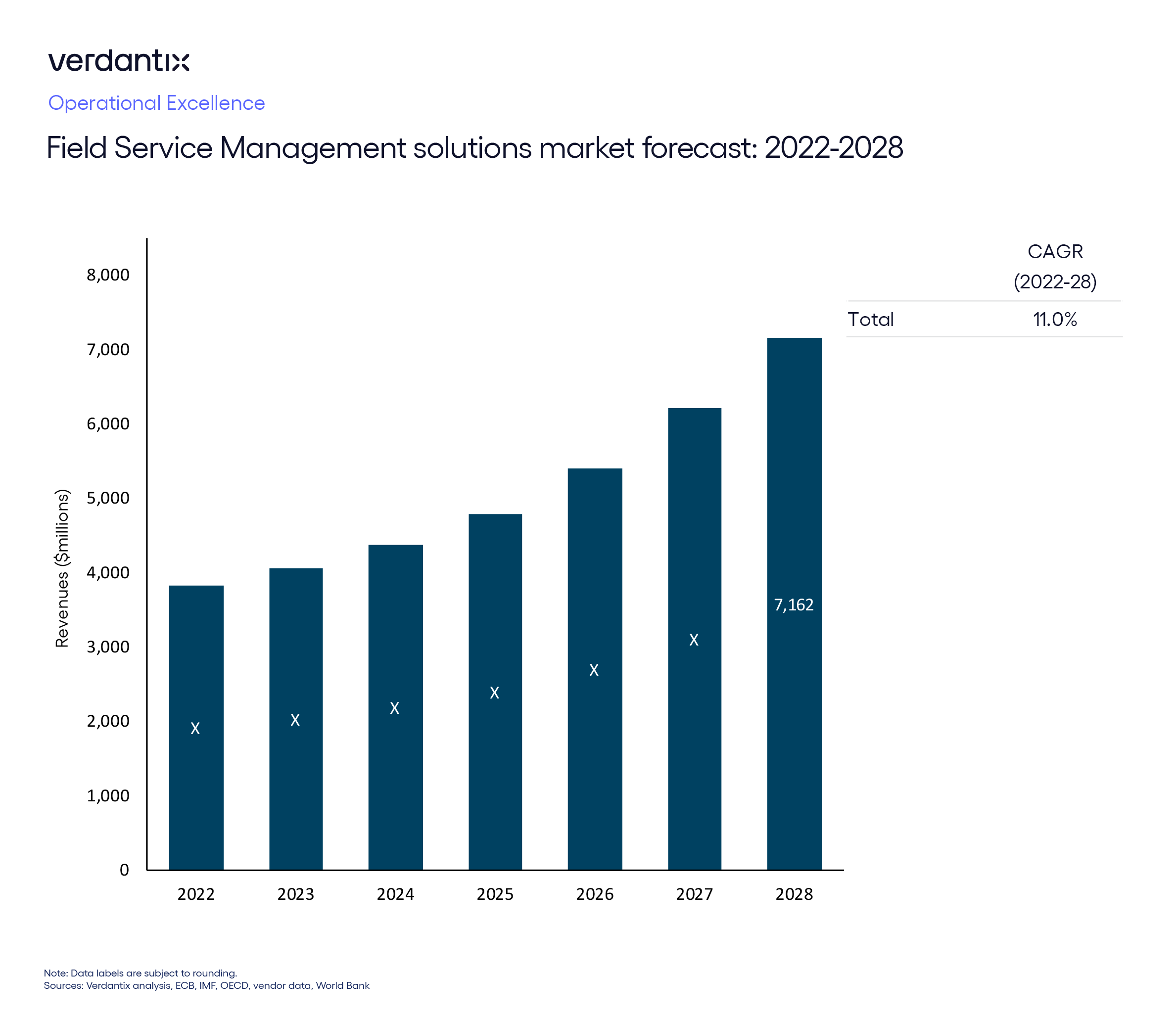Field Service Management Software Market Will Hit $7.16 Billion By 2028, Fuelled By Productivity Enhancements And Labour Shortage Mitigation
The global market for field service management (FSM) software will grow from $3.83 billion in 2022 to $7.16 billion in 2028, according to the recent Verdantix market size and forecast report. The market will expand at a CAGR of 11.0%, driven by significant maintenance productivity benefits, efforts to tackle labour shortages, and capability optimization through the incorporation of cutting-edge technologies such as AI. However, the growth rate will be tempered by macroeconomic instability and pressures, leading to more modest increases of around 6% in 2023 and 8% in 2024.
Over the past five years, Europe and the US have faced rising inflation, with Europe's rates climbing from 1.5% in 2017 to 5.5% by 2023, and in the US from 2.8% in 2018 to 4.0% in 2023. This has led to significant financial pressures on end-users, driving more cautious spending and thoughtful decision-making in anticipation of potential recessions. In response, software and hardware firms are finding it necessary to adjust their pricing strategies and product development plans. Additionally, the software industry's funding and valuations have declined, with a notable slowdown in venture capital (VC) investments, especially in 2022 and early 2023, reflecting fewer funding rounds and acquisitions.
Despite these challenges, the demand for FSM technologies persists, propelled by the need for efficient worker onboarding and productivity improvements. FSM software providers are increasingly harnessing AI to expand their service capabilities, offering more sophisticated functionality that strengthens technicians' problem-solving and decision-making skills through insights from service histories and equipment performance. A prime example is IFS's IFS.ai, which improves field service operations through effective scheduling, comprehensive analytics and AI-driven enhancements in customer relationship management, streamlining interactions and optimizing logistics for a more advanced FSM approach. Similarly, the integration of natural language processing is rationalizing knowledge management and enabling quicker and more accurate responses.
The manufacturing sector, with its complex operations and reliance on heavy machinery, will experience significant growth, with a projected CAGR of 15.5% from 2022 to 2028. In this sector, innovations in FSM that focus on asset-centric approaches are becoming increasingly important. An example is ServiceMax, which enhances technician effectiveness and customer satisfaction by offering a holistic view of asset information, specifically designed for the manufacturing landscape. The telecoms and utilities sectors, already mature in FSM uptake, are expected to see steadier growth rates, of 9.0% for telecoms and 8.3% for utilities, indicative of their more advanced adoption levels.
Overall, the FSM software market is poised for expansion amidst technological evolution and market demand – despite economic headwinds. Providers that adeptly manage pricing and continuously innovate to meet the growing need for greater productivity will navigate these challenges successfully.
For more information on FSM software market trends, read the following Verdantix reports: Market Size And Forecast: Field Service Management Software 2022-2028 (Global) and Strategic Focus: The Converging Landscape of Enterprise Asset Management And Field Service Management Solutions.

About The Author

Henry Kirkman
Industry Analyst





